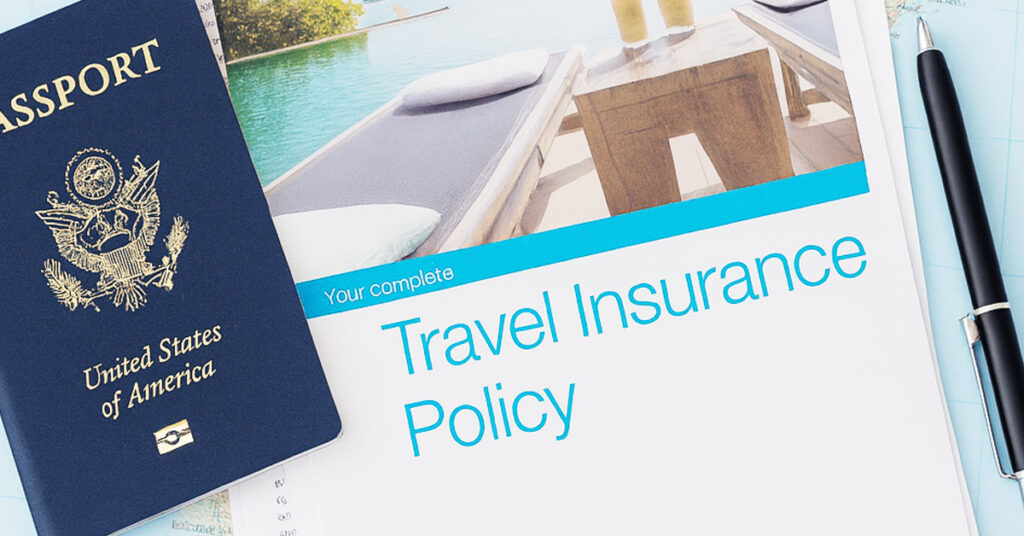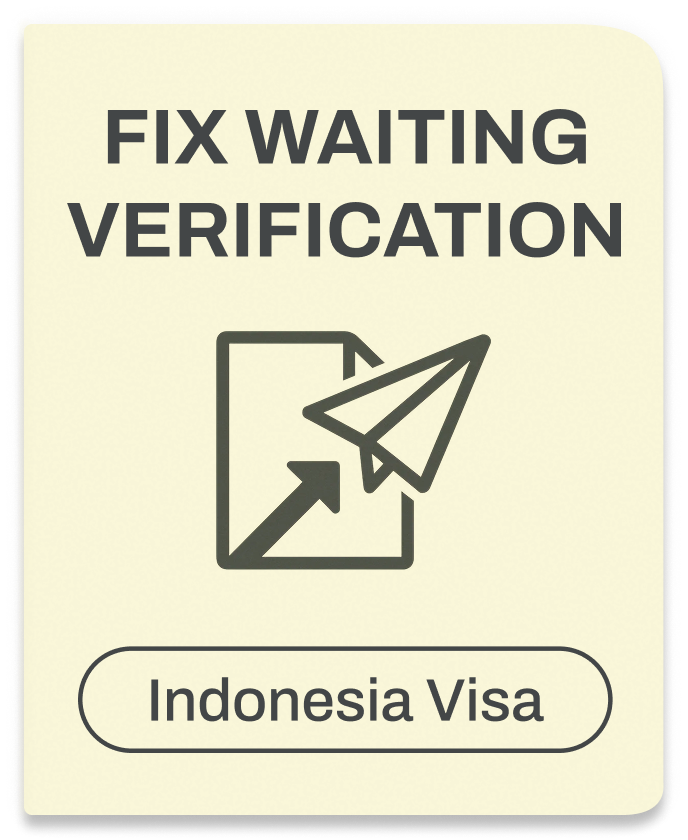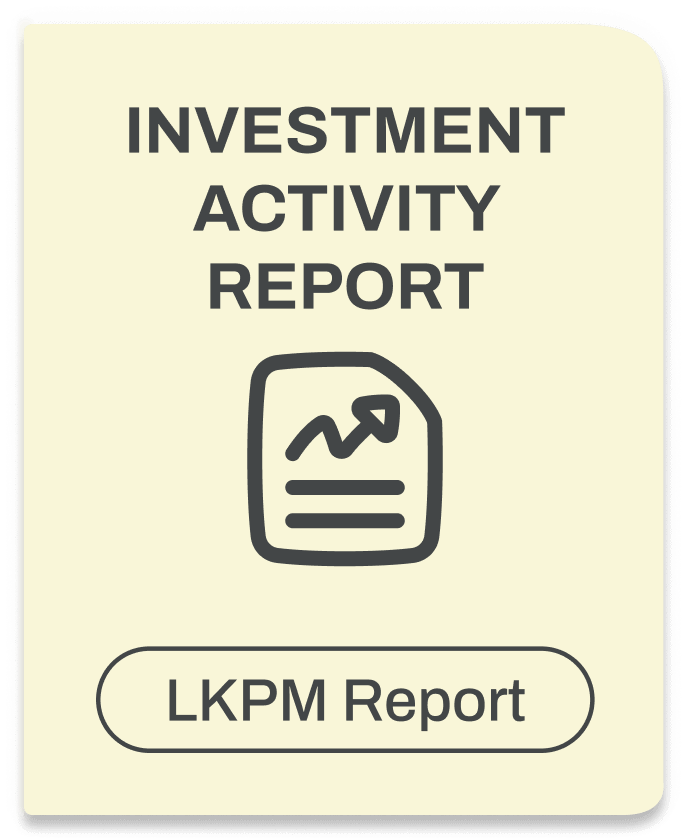Travel Insurance Bali: Mistakes You Don’t Want to Make

In 2025, dengue fever cases jumped sharply across Bali, and volcanic ash clouds caused dozens of flight delays, making travel insurance more important than ever.
That’s why having comprehensive travel insurance is essential for your Bali holiday. The right travel insurance policy will provide cover for medical expenses if you fall ill or get injured, protect your personal effects if your belongings go missing, and reimburse you for trip cancellations caused by unexpected events. With insurance in your corner, you can explore Bali’s wonders with confidence, knowing you’re prepared for whatever comes your way.
Types of Travel Insurance for Bali Travelers
When planning your Bali trip, it’s important to choose a travel insurance policy that matches your itinerary and activities. Here’s a quick guide to the main types of travel insurance available:
- Comprehensive travel insurance: This is the gold standard, offering broad protection for medical expenses, trip cancellations, lost or stolen personal effects, and more. It’s ideal for most travelers who want peace of mind throughout their journey.
- Basic travel insurance: A more affordable option, basic policies provide limited cover, usually for medical emergencies and some personal effects. While it’s budget-friendly, it may not include extras like cancellation fees or adventure sports.
- Adventure travel insurance: If your Bali holiday includes high-adrenaline activities like scuba diving, surfing, or trekking, you’ll want a policy that specifically provides cover for these pursuits. Adventure travel insurance is designed to protect you during riskier activities that standard policies might exclude.
No matter which type you choose, make sure your travel insurance policy provides adequate cover for your needs, so you can enjoy every moment of your Bali adventure.
Risks Unique to Bali (That Your Travel Insurance Must Cover)

Bali is one of the most magical travel destinations on the planet, but like anywhere, things don’t always go as planned. From scooter crashes to tropical illnesses and missed flights, these risks are why having the right travel insurance policy matters more than ever. For travelers heading to Bali, choosing a specialized Bali travel insurance plan ensures comprehensive protection tailored to the unique risks and needs of a Bali trip.
Here are some common (and costly) travel mishaps you’ll want to be prepared for:
Bali Belly Can Send You Straight to the Hospital
It happens to a lot of travelers. One wrong meal or a few sips of unfiltered water can leave you sick for days. A quick visit to a local clinic might cost you around $50 to $200 USD, depending on the treatment. But if things get worse and you need to stay in a private hospital overnight, expect to pay $1,000 or more per night, and that doesn’t even include lab tests or meds.
Scooter Accidents Are a Top Insurance Claim
Renting a scooter may seem like the perfect way to explore Bali, but accidents are common, especially among first-timers. And here’s the kicker: if you’re riding without a valid licence or a helmet, your insurer may reject the claim entirely.
Injuries like broken bones or head trauma can require emergency surgery or even medical evacuation. You’ll also be responsible for any damage to the rental vehicle if you don’t have rental vehicle excess protection.
Trip Cancellation Can Cost You More Than You Think
Sometimes, the trip falls apart before it even begins. Whether it’s a sudden illness, an injury, or a natural disaster at home or in Bali, you might have to cancel everything last minute. Without the right insurance, you’ll be stuck paying for non-refundable flights, hotel bookings, tour packages, or lost deposits. A good policy includes trip cancellation, cancellation costs, cancellation fees, and coverage for lost deposits, so you’re not throwing your vacation budget out the window.
Dengue Fever Is More Common Than You’d Expect
Dengue is a serious mosquito-borne illness in Bali, especially during the rainy season. Symptoms include high fever, severe pain, and dehydration, and it often requires hospitalization.
Treatment isn’t cheap, especially at international clinics. Some travelers even require emergency evacuation to nearby countries with better medical infrastructure. Always check if your policy includes dengue-related medical treatment.
Theft or Lost Documents Can Derail Your Trip
Tourist hotspots like Seminyak and Ubud are known for petty theft. Bags, passports, and phones go missing all the time. That’s why it’s crucial to have insurance coverage that protects your personal belongings, including valuables and travel documents, against theft or loss. Losing your travel documents mid-trip can lead to missed flights, extra hotel stays, and emergency passport replacements.
Look for a policy that covers personal effects, lost luggage, personal effects delay expenses, and personal belongings to help you recover quickly, without breaking the bank.
How to Buy the Right Travel Insurance for Bali
Choosing the right travel insurance for Bali doesn’t have to be complicated. Start by considering the type of policy that fits your travel style and the level of cover you need. Look for policies that include protection for personal effects, rental vehicle excess, and any pre-existing medical conditions you may have.
Before you purchase travel insurance, read the policy documents carefully to understand what’s included and what’s not. Pay special attention to personal effects cover, rental vehicle terms, and any exclusions related to medical conditions. Comparing different travel insurance policies can help you find the best value and coverage for your Bali trip.
It’s a smart move to buy your travel insurance as soon as you book your trip. This way, you’re protected against unforeseen circumstances like cancellations or changes before you even set foot on the island. With the right travel insurance policy in place, you can set off on your Bali adventure with total peace of mind.
Step-by-Step: Buying Travel Insurance for Bali

Planning a trip to Bali? Good call. But before you zip up your suitcase and grab your passport, let’s talk about something most people skip, travel insurance. Here’s a simple, step-by-step guide to help you choose the right policy, so you can travel smart and stay protected.
Step 1: Know Why You Need It
Bali’s beautiful, but unexpected things happen. From scooter accidents to Bali belly, medical expenses can add up fast. Travel insurance for Bali can cover hospital expenses, medical evacuation, and even stolen personal effects. It gives you peace of mind so you can enjoy your trip, not stress over what-ifs.
Step 2: Figure Out What You’re Doing in Bali
Are you planning a laid-back Bali holiday or something more adventurous, like scuba diving or renting a motorbike? Your activities matter. Some policies don’t cover things like rental vehicles or high-risk sports unless you add them. Make a list of what you’ll be doing so you can pick a policy that actually fits.
Step 3: Compare Travel Insurance Policies
Use a reliable comparison site or go directly to trusted insurers. Look at things like:
- Emergency assistance and overseas medical coverage
- Sub limits for things like hospital cash allowance or cancellation fees
- What’s included vs. excluded (like pre-existing medical conditions)
- Whether it covers travel delay expenses or lost luggage
Tip: Not all policies offer the same travel insurance cover, so read the fine print.
Step 4: Check the Coverage Details
Here’s what your Bali travel insurance policy should ideally include:
- Medical and hospital expenses (at least $100,000)
- Medical evacuation and repatriation
- Personal liability (in case you accidentally hurt someone or damage property)
- Travel documents and baggage protection
- Cancellation costs for unexpected events like natural disasters or emergencies back home
- Coverage for rental car excess if you’re driving
If you’re planning to rent a scooter, make sure you have a valid license and that your insurer recognizes it.
Step 5: Look Into Exclusions
Some travel insurance policies won’t pay if:
- You were under the influence of alcohol
- You didn’t wear a helmet on a scooter
- You ignored government travel advisories
- You already had the condition before traveling (pre-existing medical conditions)
Knowing these exclusions helps you avoid surprises later.
Step 6: Buy Early and Keep the Details Handy
The best time to purchase your travel insurance is right after booking your trip. This way, cancellation benefits kick in immediately. Once you’ve bought the policy:
- Save a digital and printed copy
- Write down emergency contact numbers
- Download the insurer’s app if they have one
Step 7: Don’t Be Afraid to Ask Questions
Still unsure? Contact the insurer or check with your travel agent. If you’re traveling from Australia, look at recommendations from the Australian government or Smartraveller. It’s better to ask now than be stuck later.
Coverage Benefits for Bali Travelers

Traveling to Bali can be the trip of a lifetime, but accidents, illnesses, and delays can happen when you least expect them. The right travel insurance for Bali ensures you’re financially protected and supported in emergencies. Below are the specific coverage features every traveler should look for:
It’s important to choose a dedicated Bali travel insurance policy to ensure you have comprehensive protection tailored to the unique risks and needs of traveling in Bali.
1. Emergency Medical & Hospital Expenses
Medical expenses in Bali can be surprisingly affordable for basic care, such as clinic visits or mild illnesses. However, more serious cases, like surgery, emergency care, or overnight hospitalization at international-standard facilities, can get very expensive. That’s why your insurance must cover:
- Medical expenses from illnesses like food poisoning, dengue fever, or infections
- Hospital expenses, including room, treatment, and medication
- Treatment at an overseas hospital in case of serious emergencies while traveling
- Medical treatment at both public and private medical facilities
- Hospital cash allowance, which provides daily compensation if you’re hospitalized abroad
Most travel experts recommend getting a policy with at least $50,000 in medical coverage and $100,000 for emergency evacuation. That’s the bare minimum. But if you want to play it safe, go higher. A medical evacuation from Bali to your home country can cost anywhere between $55,000 and $150,000 depending on the distance and situation. So, the more coverage you have, the more peace of mind you’ll get.
2. Emergency Evacuation & Overseas Emergency Support
If you suffer a serious injury or condition that local hospitals can’t handle, you may need to be transported to Singapore or Australia. That process, called medical evacuation, can cost upwards of USD 50,000.
- Coverage should include emergency assistance and overseas emergency medical transport
- Plans should also cover repatriation (getting you back home if medically necessary)
- Look for 24/7 multilingual support for emergencies
Some providers offer direct billing with Bali hospitals, reducing upfront costs. Additionally, some providers offer cover for extra emergency services or support during your trip, ensuring you have comprehensive assistance in unforeseen situations.
3. Trip Cancellation, Interruption & Travel Delay Protection
Volcanic ash clouds, family emergencies, or sudden illness can force you to cancel or cut short your trip. Reliable insurance will cover:
- Trip cancellation or interruption due to unforeseen events
- Reimbursement for cancellation costs, flights, or accommodations you can’t use
- Travel delay expenses if your flight is delayed for long periods
Make sure your policy includes coverage for natural disasters and civil unrest.
4. Personal Effects, Luggage, and Document Protection
Lost luggage is a common headache. Bali’s busy airports and hotel transfers can lead to missing bags or stolen property.
- Coverage should include personal effects lost, stolen, or damaged
- Lost luggage and travel documents such as passports and visas
- Personal effects delay expenses: reimbursements if your bags arrive late
Some policies require police reports for theft claims, so keep records.
5. Rental Vehicle & Scooter Accidents
Scooter rentals are popular but dangerous. Accidents are one of the top claims in Bali.
- Ensure your policy includes rental vehicle or rental car coverage
- Must have a valid licence from your home country and international driving permit
- Rental vehicle excess coverage is also crucial; this reimburses the deposit or deductible charged by the rental company if you damage the vehicle
Be aware: riding without a helmet or proper license may void your claim.
6. Adventure Activities & Sports Coverage
Bali is known for adventure activities like scuba diving in Tulamben, whitewater rafting in Ubud, and volcano hiking on Mount Batur.
- Many standard travel insurance policies exclude high-risk or extreme sports by default, so add-ons may be required for activities like scuba diving, surfing, or hiking above 3,000 meters
- Always read your insurer’s list of covered activities, some exclude even moderate adventures if they involve altitude, speed, or water depth
- If you’re participating in these activities as part of a job, retreat, or volunteer program, check for professional capacity exclusions; injuries under those conditions may not be covered
Common Exclusions & Pitfalls to Avoid
Even the best travel insurance policy has limits. To avoid frustration (and big bills), it’s super important to know what isn’t covered. Here are the most common exclusions and mistakes travelers make when using their travel insurance for Bali: Many policies have exclusions for claims relating to specific events or circumstances, such as natural disasters or incidents involving active volcanoes.
1. Pre-Existing Medical Conditions
If you already have a health issue, like asthma, heart problems, or diabetes, your policy might not cover it unless you declare it upfront and pay an additional premium.
- Always check the insurer’s list of pre existing medical conditions
- Some policies offer a waiver if your condition is stable
Missing this step can make your medical expenses claim invalid.
2. Riding a Scooter Without a License
Scooter accidents are one of the top reasons people end up in the hospital in Bali. But most insurers won’t cover you if:
- You don’t have a valid licence from your home country
- You aren’t wearing a helmet
- You were drinking or speeding
Even if it seems easy to rent a scooter, without a valid licence, your rental vehicle or medical cover could be completely denied.
3. Alcohol or Drug-Related Incidents
Many policies have strict rules against covering injuries that happen while you’re drunk or using drugs. That includes:
- Falls, scooter crashes, or fights while intoxicated
- Hospital visits due to alcohol poisoning
Be smart, if you’re under the influence, your insurance coverage may not help.
4. Ignoring Government Travel Warnings
If your country issues a warning not to travel to a certain area in Bali (due to volcanic activity or political unrest), and you go anyway, your claim might be rejected.
- Always check with the Australian government or your local authority for advisories
Traveling against advice = no travel insurance cover.
5. High-Risk Activities Without Coverage
Not all adventure sports are included by default. You may need to pay an additional premium for things like:
- Scuba diving, whitewater rafting, hiking Mount Agung
- Working or volunteering in a professional capacity
Always read your policy carefully and get add-ons if needed.
Lost or Unattended Belongings
If you leave your phone or bag unattended, even just for a few minutes, and it gets stolen, your claim might be denied.
- Some insurers require a police report
- Others won’t cover valuables left in plain sight
To protect your personal effects, keep them secure and report thefts quickly.
In addition to protecting your own belongings, some travel insurance policies also include legal liability coverage in case you accidentally damage someone else’s property.
Waiting Too Long to Get Help
In an emergency, time matters. Some insurers want you to call them before getting treatment, especially for major medical situations or evacuation.
- Delaying contact can limit your emergency assistance
- Keep the insurer’s hotline saved in your phone
Always read the claims process in your policy so you don’t lose your benefits.
What to Do If You Need to Make a Claim (and How to Get Support)
If the unexpected happens during your Bali trip and you need to make a claim on your travel insurance policy, acting quickly is key. Contact your insurance provider as soon as possible and gather all the necessary documentation, which might include receipts, medical certificates, or police reports, depending on the situation.
Your insurer will guide you through the claims process and let you know what information is required. For emergencies, most travel insurance providers offer 24/7 emergency assistance, so you can get help and advice whenever you need it. Whether you’re dealing with lost luggage, a medical emergency, or another unexpected event, having a solid travel insurance policy means you’ll have support every step of the way. That way, you can focus on getting back to enjoying your Bali adventure, knowing you’re in safe hands.
Choosing the Right Travel Insurance Policy for Bali

Not all travel insurance policies are built the same. If you’re heading to Bali, you need a plan that actually fits your trip, covers real risks, and won’t let you down when something goes wrong. Here’s how to pick the right one without the headache.
1. Think About Your Trip: Start by asking yourself a few simple questions:
- How long will you be in Bali?
- Are you planning to ride a scooter or rent a car?
- Do you have any pre-existing medical conditions?
- Will you be doing activities like scuba diving or hiking?
Your answers matter. For example, if you’re renting a scooter, make sure your policy includes rental vehicle or rental car coverage and that you have a valid licence. Some insurance providers won’t pay out for accidents if you don’t follow local rules.
2. Know What Should Be Covered: Look for a policy that includes the essentials:
- Medical expenses and hospital expenses (at least $100,000 coverage is a good starting point)
- Emergency assistance and medical evacuation
- Overseas medical and overseas emergency medical care
- Trip cancellation and cancellation fees
- Lost luggage, travel documents, or personal effects
- Travel delay expenses and unexpected medical costs
- Rental vehicle excess in case you damage a hired scooter or car
- Coverage for legal expenses in case you face legal claims or proceedings during your trip
- Special extras like Bali belly or dengue fever coverage if available
These aren’t just buzzwords. They can save you thousands if something unexpected happens.
3. Watch Out for Exclusions: Even the best travel insurance won’t cover everything. Read the policy wording and look out for:
- Pre-existing medical conditions (some need special approval)
- Accidents that happen under the influence of alcohol
- Unlicensed driving
- Unforeseen events like volcanic ash disruptions may require extra coverage
4. Set the Right Sub Limits: Just because your total coverage sounds big doesn’t mean it’s enough. Some policies have sublimits. That means they cap how much you can claim for certain things, like baggage, electronics, or hospital stays. Double-check them before you buy.
5. Compare Before You Click “Buy”: Use trusted sites or official insurance providers to compare your options. Look at claim reviews. Check if they offer support while you’re already overseas. And make sure the insurance cover starts the day you leave, not just when you land.
Remember, the goal isn’t to spend the least. It’s to get the best protection for your Bali adventure. Choose smart, and you can travel with peace of mind.
Top Travel Insurance Providers for Bali
Finding the right travel insurance provider can feel like searching for a needle in a haystack. But don’t worry, we’ve done the digging for you. Whether you’re worried about medical expenses, lost luggage, or getting stuck with a big rental vehicle excess bill, these companies are known for offering strong travel insurance coverage for Bali trips.
Consider these providers when planning your next Bali trip to ensure you have the right coverage.
World Nomads
World Nomads is a favorite for adventurous travelers. If you’re planning to go scuba diving, hike through rice fields, or zip around on a scooter, this provider is worth checking out. They cover over 200 activities and offer solid overseas medical and emergency assistance support. You can even buy a policy after you’ve started your trip, super handy if you’re already overseas.
Allianz Travel Insurance
Allianz is known worldwide and offers comprehensive travel insurance that fits different types of travelers. Their plans usually include medical and hospital expenses, cancellation costs, and travel delay expenses. They also have a 24/7 emergency hotline, which is a huge plus if you need fast help in Bali.
SafetyWing
This one’s a top pick for digital nomads or long-stay travelers. SafetyWing offers flexible coverage that includes hospital expenses, bali belly, and even dengue fever. Their plans are affordable, and they let you renew month-by-month, which is perfect if you decide to extend your bali holiday. This makes SafetyWing especially suitable for those planning extended or multiple bali holidays, ensuring you have health and safety coverage throughout your trip.
Cover-More
Popular with Australian travelers, Cover-More offers policies with high medical cover and options for rental car excess protection. They’re also backed by Zurich Insurance, a trusted global name. Great if you want peace of mind while riding through Bali’s winding roads.
Tick Travel Insurance
Looking for budget-friendly coverage? Tick Travel Insurance keeps things simple and affordable. Their basic plan still includes essential protection like medical treatment, trip cancellation, and personal effects coverage. Just double-check the sub limits so you know what’s capped.
Bonus Tip:
When comparing these providers, don’t just look at the price. Think about what you actually need. Do you want strong hospital cash allowance coverage? Or maybe protection for unforeseen circumstances like natural disasters? Always read the fine print and check the claims process.
Bali travel insurance FAQs
Q: Is travel insurance mandatory for Bali?
No, travel insurance is not mandatory to enter Bali. However, most guides strongly recommend it. Travel insurance for Bali gives peace of mind and protects you if something unexpected happens, like medical emergencies, trip cancellations, or lost luggage.
Q: How much does Bali travel insurance cost?
In 2025, a good comprehensive plan now costs around $20 to $25 per day. So, if you’re staying in Bali for a week, you should expect to spend about $140 to $175 for solid coverage.
Q: Will Bali travel insurance cover Bali belly or food illness?
Yes. Most plans include coverage for medical treatment and hospital expenses if you catch Bali belly or get sick from food and water. Just keep your receipts and see a medical professional to support your claim.
Q: Are scooter or rental vehicle accidents covered?
Maybe. Many insurer policies exclude motorbike accidents unless:
- You have a valid licence
- You wear a helmet
- Your policy specifically includes rental vehicle or scooter coverage
Always double-check these details before riding a scooter in Bali.
Q: What about natural disasters disrupting my trip?
Yes, policies usually cover trip cancellation or delays due to natural disasters like volcanic eruptions, earthquakes, or floods. But confirm that natural disasters are listed as covered causes in your policy.
Q: Can I extend my Bali travel insurance if I stay longer?
Absolutely. Many insurers let you extend your policy while you’re still in Bali. Just contact the provider before the policy expires to arrange it.
Q: Can I buy travel insurance after arriving in Bali?
Yes, some providers like World Nomads and SafetyWing allow you to buy or renew travel insurance even after you’ve arrived. But purchasing before departure gives better protection, like cancellation coverage.
Q: Do pre‑existing medical conditions get covered?
Usually no, unless your plan includes a pre-existing conditions waiver. Always read the fine print or ask your insurer to confirm what is and isn’t covered.
Ready to Apply or Extend Your Visa?
Let our visa specialists handle your application.



















